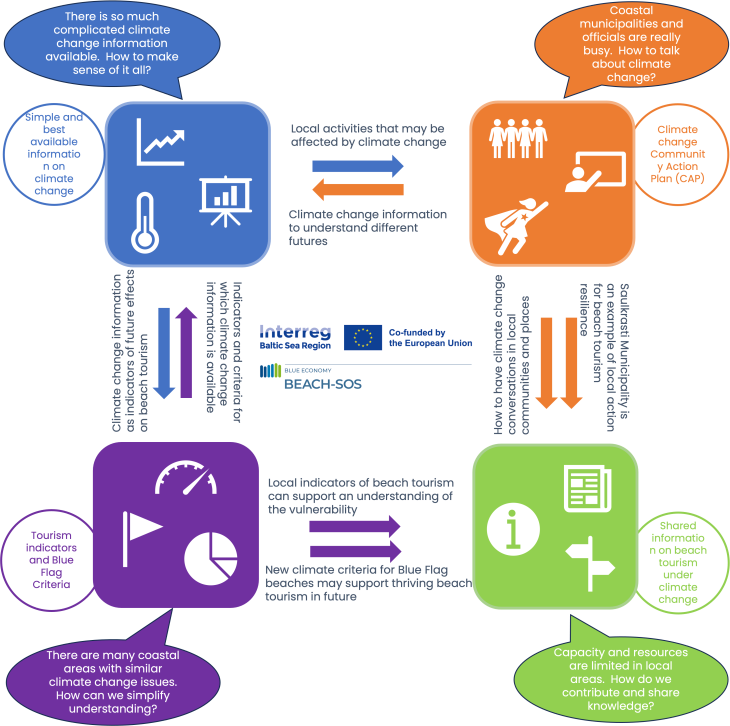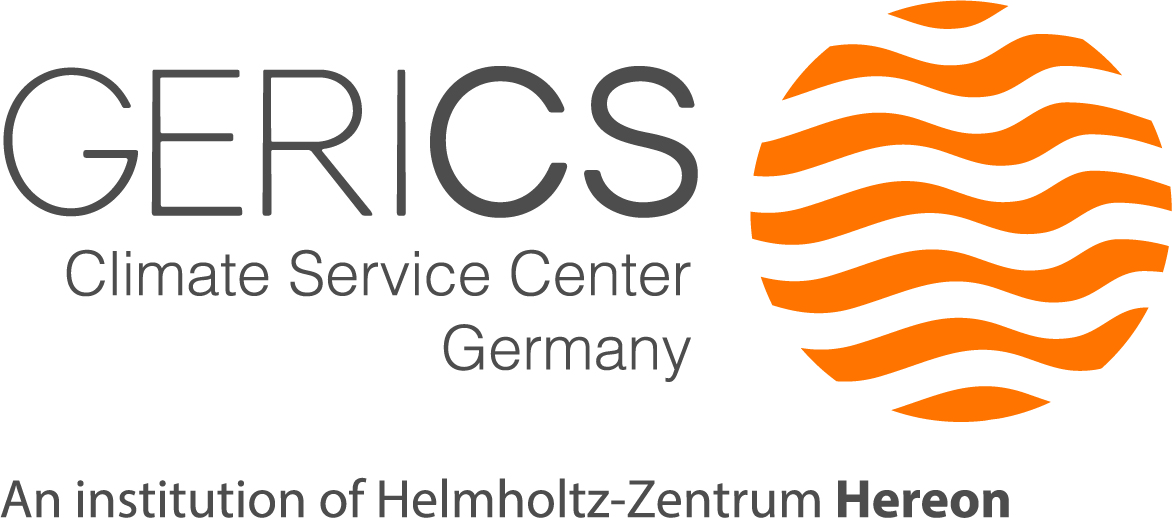The BEACH-SOS project: Coastal tourism adaptation to climate change
Coastal tourism in the Baltic Sea is the largest contributor to the EU's Blue Economy, providing more than 330,000 jobs (Blue Economy Report, EU 2021). However, coastal tourism is highly climate-sensitive and the impacts of climate change threaten the sector's ability to maintain its economic benefits. Adaptation strategies supported by climate change data and information are key to sustainable regional economies.
Nonetheless, climate change data and information are difficult to access, understand and integrate into decision-making. As a result, awareness and uptake of climate change information among communities and stakeholders is low. BEACH-SOS, with activities in Latvia, Denmark and Germany, is an INTERREG-BSR small project that aims to increase the capacity of local governments, Blue Flag beaches, coastal tourism businesses, business support units, NGOs and coastal communities to become 'climate-smart'. BEACH-SOS will develop the capacity to integrate climate change into beach management strategies and provide the best available data and information for the adaptation of coastal tourism.
BEACH-SOS will seek wider endorsement from Baltic Sea stakeholders for four co-produced deliverables and outputs (Figure 1):
1) Sustainable adaptation pathways for coastal/beach tourism in the Baltic Sea;
2) Climate-smart community action plan for beach adaptation for the Municipality of Saulkrasti, Latvia;
3) Assessment and development of indicators and criteria for climate-smart and resilient tourist beaches;
4) A Baltic Sea Region information exchange network for resilient beach tourism.
The partnership

The BEACH-SOS project co-funded by the Interreg Baltic Sea Region Programme 2021-2027 helps to coastal communities to adapt to climate change.
• Climate Service Center Germany (GERICS) of the Helmholtz-Zentrum hereon GmbH is a science partner and a think-tank for the development of climate services.
• Outdoor Council Denmark: NGO that Promotes outdoor recreation and nature protection. Blue Flag National Operator.
• Saulkrasti Municipality: Latvian coastal municipality, with the support of the tourims department. BEACH-SOS pilot site.
• Vides Izglitibas Fonds: NGO that Promotes environmental education and cooperation in Latvia. Blue Flag National Operator.
• EUCC-D: NGO that promotes sustainable coastal development in Germany and the Baltic, sustainability indicators expert.
• Foundation for Environmental Education (FEE): Function that runs Blue Flag Programme internationally.
• Gdansk Sports Centre (GOS): Coastal municipality with expertise in beach management and tourism development.
BEACH-SOS in a nutshell
BEACH-SOS is the first step in an interregional learning process for climate-smart beaches and coastal tourism.
It initiates the coming together of regional experts, local practitioners, and community-based interested parties so that preliminary exchanges and the beginnings of transformative action can be kick-started.
Trust will be built between communities where climate threatens the beach industry (including BF communities), climate risk and adaptation experts, and important tourist service providers, incl. businesses.
Looking ahead, Beach SOS will have been a springboard to secure the region’s beach tourism industry and will significantly benefit the region’s blue economy.
To the "Beach SOS" project website
